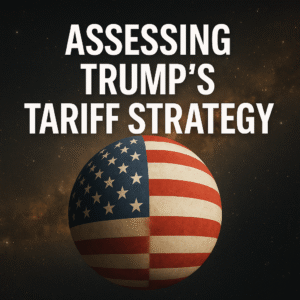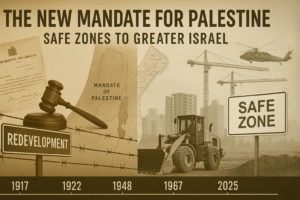Geopolitical Briefing: Jordan
— 1 June 2025
- Israel blocks Arab ministers, including Jordan’s, from visiting Ramallah to discuss Palestinian statehood.
- Jordan condemns Israeli restrictions on Gaza aid, with supplies stalled in Amman warehouses.
- Amman protests erupt in solidarity with Palestine, reflecting public dissent.
- Jordan's reliance on Israeli water supply raises concerns amid regional tensions.
- Security cooperation between Jordan and Israel continues discreetly despite diplomatic strains.(Reuters, Cadena SER, Cadena SER, Atlantic Council)
On May 31, Israel obstructed a planned visit by foreign ministers from Jordan, Egypt, Saudi Arabia, Bahrain, and the UAE to Ramallah, citing security concerns. The delegation intended to discuss international recognition of a future Palestinian state—a move opposed by Israel's right-wing government. Jordanian Foreign Minister Ayman Safadi condemned the action, stating it undermines prospects for a just and comprehensive peace. This incident highlights Jordan's precarious position, balancing its diplomatic ties with Israel against regional solidarity with Palestinian aspirations.(Reuters, Reuters)
Jordan has expressed frustration over Israeli restrictions on humanitarian aid to Gaza. Government spokesperson Mohamed al Momani accused Israel of obstructing access to essential supplies, with many shipments remaining blocked in Amman. He labeled these actions as war crimes and criticized Israel's inaction regarding offers to treat injured Gazan children in Jordanian hospitals. This situation underscores Jordan's limited autonomy in addressing regional humanitarian crises, constrained by its dependencies and diplomatic agreements.(Cadena SER)
Mass protests erupted in Amman on May 31, with demonstrators expressing solidarity with Palestinians and condemning Israeli actions in Gaza. These protests reflect the Jordanian public's strong Islamic and anti-Israel sentiments, challenging the government's efforts to maintain stability and its pro-Western stance. The government's reliance on foreign aid and its alliance with the U.S. complicate its ability to respond to domestic pressures without risking political upheaval.
Jordan's dependence on Israeli water supplies remains a critical concern. Despite a 1994 agreement ensuring annual water provisions, recent Israeli actions have raised fears of using water access as a geopolitical tool. Jordanian officials have criticized this dependency, highlighting attempts by Israel to hinder the development of Jordan's own water infrastructure, such as desalination plants. This reliance compromises Jordan's control over essential resources and exposes it to external political pressures.(Cadena SER)
Despite diplomatic tensions, security cooperation between Jordan and Israel continues discreetly. This includes joint efforts in missile defense and intelligence sharing, often facilitated by U.S. support. Such collaborations are maintained to ensure regional stability and to secure continued foreign aid, despite public opposition and the potential for internal dissent. This ongoing cooperation illustrates Jordan's challenges in asserting its sovereignty while navigating complex regional dynamics.(Atlantic Council)


